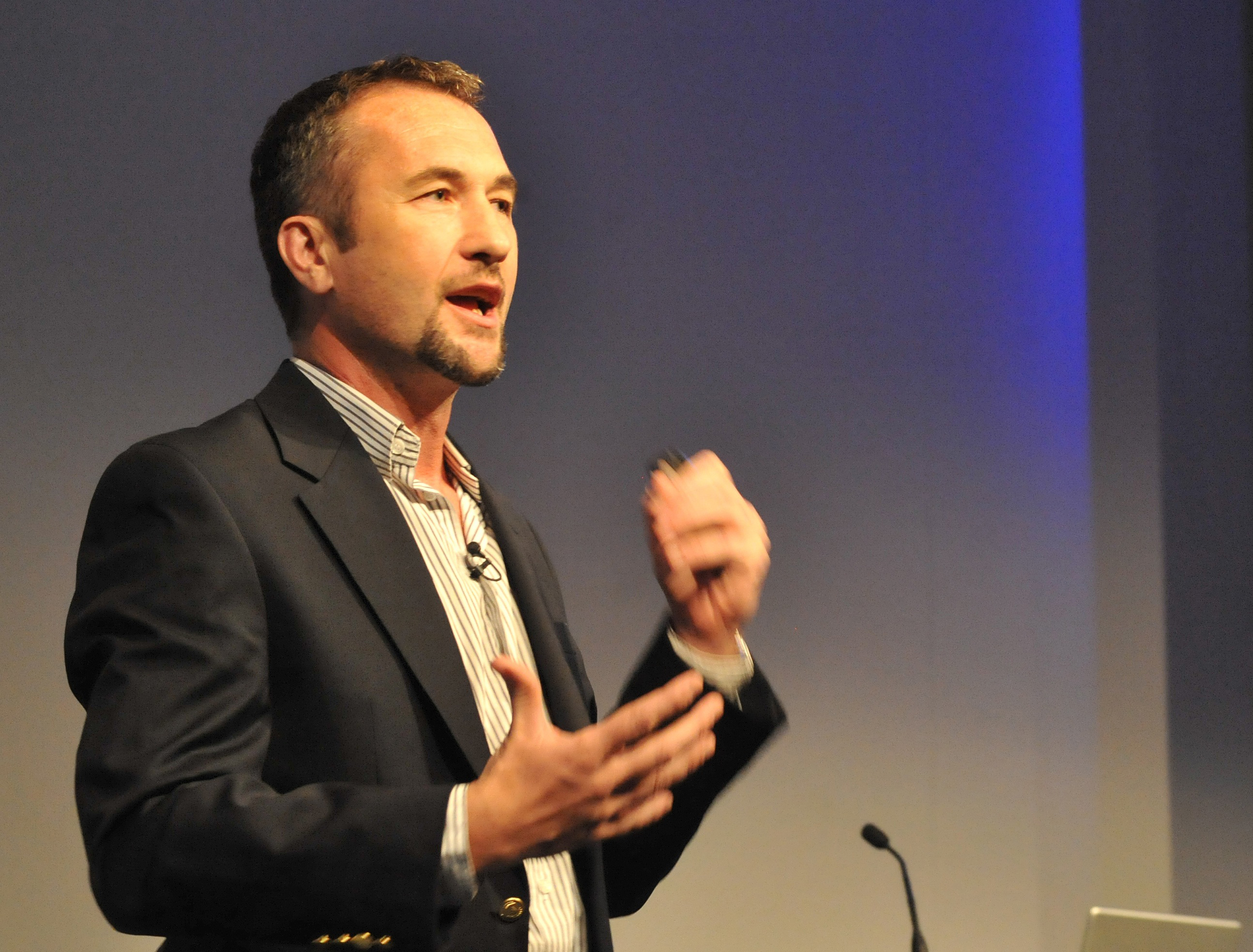Many people do public speaking as a part of their job, giving presentations to clients or coworkers. Others speak in informal group settings, such as giving a toast at the dinner table. Some public speakers, however, make it their primary career. If you're interested in a profession in public speaking, here are some questions to consider.

What if I'm good at speaking with people one on one or in small groups, but get nervous in front of a crowd?
This is a common question. Many people have a fear of public speaking. In fact they say that this is a more common fear than even death, so you are not alone with this problem. There are different things you can do to help you get over this. The more familiar you are with your material, the easier it will be. You also need to learn to focus on the audience and being present in the moment, rather than spending too much time thinking about yourself and your nerves. Finally, practicing makes a big difference. The more you speak in public, the more confidence you will gain with it.
Can anybody ever really conquer stage fright, or will it always be there?
Even the most famous comedians and TV show hosts often have stage fright before their performances, so it's safe to say that it's normal to feel some sort of anxiety. Always remember that you're bigger than the stage fright. Rather than thinking about "getting rid" of that fear, focus on your strengths. Better yet, you can transform your fears into strengths. "Do I have a reason to be scared?" "Why should I be nervous when I should feel excited?" "I can do this, I've done it a million times" - these phrases should give you more confidence because at the end of the day, stage fright is just a myth, something that doesn't exist.
After doing more public speaking, you'll gain the confidence that you can do it anyway. The fear is in your head, and if you just move forward through it, you can be a great public speaker. Just let your confidence be greater than your fear.

I'm very confident in my normal life. How can I be as confident about public speaking?
Confidence takes time and experience to build. Every time you give a successful speech, your confidence in your public speaking ability will grow. Deep inside, you will begin to know that you can do this, that you really are a good public speaker. Nurture that seed of confidence by reinforcing it to yourself. Some people use affirmations for this. "I'm an excellent communicator; I could be an excellent speaker, too." "I'm shouldn't be afraid of public speaking, I love talking to people." "Confidence is my mantra."
These affirmations can bring successful experiences to the surface, thus building your confidence. Other people work with a coach, who can help them develop both their speaking skills and their confidence.

I have a message I want to share with people. How can I get better about turning this into a compelling speech?
If you already know what your purpose and central message are, then you are in a better position than many people who are still trying to figure that out. There are many books and training courses about how to create and deliver a powerful speech. You could also check the web for online tutorials with the world's best public speakers. Listen to what they have to say, assess their style and analyze the way they connect with their audience.
What makes a public speaker a great public speaker? The answer is the ability to appeal to an audience in the first 2 minutes of the speech. If you can entice people in that timeframe, then you have tremendous chances of turning your speaking abilities into a career.
People who want to become public speakers need guidance. First of all, they must understand that their road to stardom will most likely be paved with a lot of challenges, so they must be prepared for the unexpected. Conference speakers can help you get started in this business. Attend meetings, know people, ask for advice, and make sure you have something meaningful to say if you want to succeed.

What if I'm good at speaking with people one on one or in small groups, but get nervous in front of a crowd?
This is a common question. Many people have a fear of public speaking. In fact they say that this is a more common fear than even death, so you are not alone with this problem. There are different things you can do to help you get over this. The more familiar you are with your material, the easier it will be. You also need to learn to focus on the audience and being present in the moment, rather than spending too much time thinking about yourself and your nerves. Finally, practicing makes a big difference. The more you speak in public, the more confidence you will gain with it.
Can anybody ever really conquer stage fright, or will it always be there?
Even the most famous comedians and TV show hosts often have stage fright before their performances, so it's safe to say that it's normal to feel some sort of anxiety. Always remember that you're bigger than the stage fright. Rather than thinking about "getting rid" of that fear, focus on your strengths. Better yet, you can transform your fears into strengths. "Do I have a reason to be scared?" "Why should I be nervous when I should feel excited?" "I can do this, I've done it a million times" - these phrases should give you more confidence because at the end of the day, stage fright is just a myth, something that doesn't exist.
After doing more public speaking, you'll gain the confidence that you can do it anyway. The fear is in your head, and if you just move forward through it, you can be a great public speaker. Just let your confidence be greater than your fear.

I'm very confident in my normal life. How can I be as confident about public speaking?
Confidence takes time and experience to build. Every time you give a successful speech, your confidence in your public speaking ability will grow. Deep inside, you will begin to know that you can do this, that you really are a good public speaker. Nurture that seed of confidence by reinforcing it to yourself. Some people use affirmations for this. "I'm an excellent communicator; I could be an excellent speaker, too." "I'm shouldn't be afraid of public speaking, I love talking to people." "Confidence is my mantra."
These affirmations can bring successful experiences to the surface, thus building your confidence. Other people work with a coach, who can help them develop both their speaking skills and their confidence.

I have a message I want to share with people. How can I get better about turning this into a compelling speech?
If you already know what your purpose and central message are, then you are in a better position than many people who are still trying to figure that out. There are many books and training courses about how to create and deliver a powerful speech. You could also check the web for online tutorials with the world's best public speakers. Listen to what they have to say, assess their style and analyze the way they connect with their audience.
What makes a public speaker a great public speaker? The answer is the ability to appeal to an audience in the first 2 minutes of the speech. If you can entice people in that timeframe, then you have tremendous chances of turning your speaking abilities into a career.
People who want to become public speakers need guidance. First of all, they must understand that their road to stardom will most likely be paved with a lot of challenges, so they must be prepared for the unexpected. Conference speakers can help you get started in this business. Attend meetings, know people, ask for advice, and make sure you have something meaningful to say if you want to succeed.
